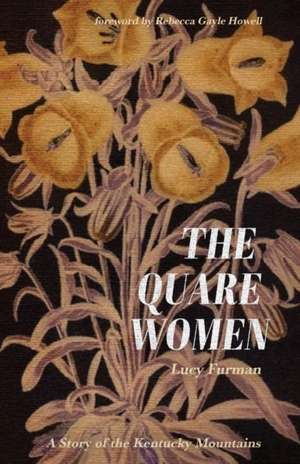The Quare Women
Autor Lucy Furmanen Limba Engleză Paperback – 4 noi 2019
Printed for the first time since 1941, this lightly fictionalized account of Pettit's and Stone's entrances into the Hindman community offers the contemporary reader a unique look at this country's early rural/urban divide. From the time of its first publication in The Atlantic to the last edition of the bound book, The Quare Women was a big success. Readers loved the book's dramatic adventure and romance, as well as the real-life research that Furman used to create the story.
To this day, the Hindman Settlement School believes in "honoring the past, improving the present, and planning for the bright and colorful future of Central Appalachia." This book endures as a lasting testament to the spirit and legacy of these trailblazing women.
Preț: 135.03 lei
Nou
Puncte Express: 203
Preț estimativ în valută:
25.85€ • 26.59$ • 21.45£
25.85€ • 26.59$ • 21.45£
Carte indisponibilă temporar
Doresc să fiu notificat când acest titlu va fi disponibil:
Se trimite...
Preluare comenzi: 021 569.72.76
Specificații
ISBN-13: 9781950564033
ISBN-10: 1950564037
Pagini: 160
Dimensiuni: 140 x 216 x 9 mm
Greutate: 0.21 kg
Editura: University Press of Kentucky
ISBN-10: 1950564037
Pagini: 160
Dimensiuni: 140 x 216 x 9 mm
Greutate: 0.21 kg
Editura: University Press of Kentucky
Descriere
When Katherine Pettit and May Stone arrived in the rural Appalachian mountains of eastern Kentucky to engage in social settlement work in the late 1800s, they were unmarried outsiders, living in pitched tents on the side of a hill, and perceived as odd, peculiar - and "quare" (the local pronunciation of "queer").
